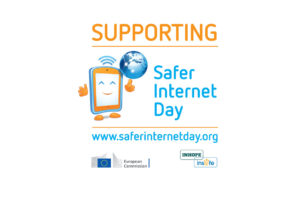
With most online sites and services offering child-friendly settings, it can be tempting to assume that your child is in safe hands.
But while privacy options and content filters provide some security, relying solely on tech-based solutions isn’t always the answer. As a parent or carer, monitoring your child’s online activity while maintaining open lines of communication is even more important.
Discover more about the settings and filters you can apply (and their limitations) below.
Privacy Settings
Most devices, social media platforms, sites and other services offer a range of privacy settings, including:
- Restricting who can interact with you and view your profile
- Hiding your profile from search results
- Not sharing locations and data
Look for these settings each time your child starts using a new service or device, and set them to the highest privacy levels.
However, even with these precautions, ensuring absolute privacy online can prove complex and even impossible. That’s why it’s necessary to have regular chats with your child about this issue to see how you both can protect your privacy and what ground rules to follow when going online.
Parental Controls
Many operating systems for devices and computers (such as iOS, Android, Windows, Chrome OS and Mac OS) offer parental controls to keep children safe online. These could include setting screen time limits, restricting certain apps, games and websites, and blocking adult content.
Internet browsers, such as Google Chrome and Firefox, as well as video streaming services like Youtube and Netflix, also provide free restrictions to adult content. Meanwhile, filters like Google SafeSearch can prevent explicit results appearing in searches.
Your home Internet service provider should also come with the option of parental controls, which can blacklist certain sites or categories of sites, and help protect you from malware.
However, parental controls aren’t 100% effective all the time, and older kids are more likely to find a way of switching them off.
These controls should be paired with regular, open conversations with your child about the sites, games and apps they use, as well as who they speak to online.
Reporting Tools
Just as we teach children to call 999 in an emergency, we should also show them how to report offensive or disturbing content they see online.
Take time to show them how to use these features and discuss real-world examples where reporting is appropriate or inappropriate.
These conversations can help children understand the difference between hearing a friend accidentally swear while playing a game and being asked for an intimate photo.
Reporting tools also give your child a sense of empowerment in ensuring their own safety and encourages them to take direct action, rather than making them feel under constant supervision.
Set an example, online and offline
Privacy settings and content filters can do much of the heavy lifting of preventing your child from getting into dangerous situations. However, leading by example and fostering trust are also key tools in protecting your family’s online safety!
When your child watches you use the Internet, show that you take privacy issues and inappropriate content seriously too. If you have set boundaries for online activities, make sure you follow them as much as possible.
Finally, you should regularly remind your child that you are always there to listen and to help them with any problems they encounter online.


